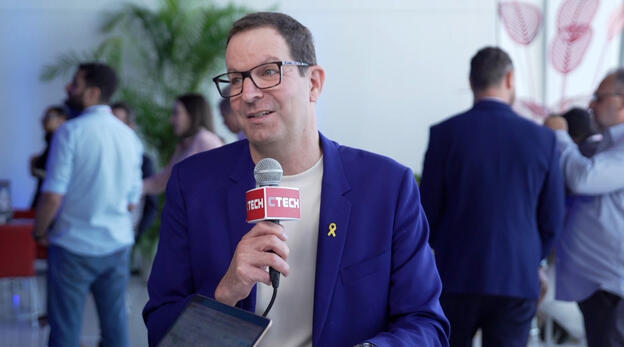
CTalk
Noam Sagi on the fight of his life to save his mother from Gaza
The co-founder and clinical director of tech company Vidavii and son of former hostage Ada Sagi spoke to CTech at Calcalist and Bank Leumi’s Tech & Invest conference in Miami about managing his company, advocating for his mother, and mental health.
Noam Sagi
(Photo: Go-Live)
On October 7th, 2023, Noam Sagi was about to launch his wellness and health tech company Vidavii in London when his world turned upside down. “Like everyone else, I woke up on the 7th of October thinking that this was another normal day…it transpired to be very different when we got the news that our mum was not found at home,” Sagi told CTech at Calcalist and Bank Leumi’s Tech & Invest conference in Miami.
Following Hamas’ attacks, his mother, Ada, a resident of Kibbutz Nir Oz, was considered missing for several weeks until it was confirmed that she was among the hostages kidnapped to Gaza. Sagi immediately shifted focus to advocating for his mother’s release. “We had to completely concentrate on the fight of our life,” says Sagi. He appeared regularly on UK and international media and met with various representatives in his efforts to save her. After 53 days in captivity, Ada was among the 105 hostages released by Hamas during a ceasefire deal.
While Sagi calls himself lucky to have his mother back, he says that his family is still recovering from the trauma. “We experience PTSD without the ‘P’ because it's not ‘post’[-trauma]. We still have 101 hostages, it's still an open wound.”
Sagi says that he has used Vidavii’s technology himself to treat his own mental health following his mother’s capture. The London-based tech wellness circuit, founded by Sagi and his wife, Michal, offers several tech-based solutions, including 3D body scans to personalize treatments to improve customers’ physical and mental health.
Already available in the UK, Vidavii is planning to enter the U.S. market, and Sagi dreams of bringing their solution to Israel. “People in Israel live in high-stress levels for ongoing periods of time,” he says. “We want it to be available for all those who have experienced different levels of trauma.”
You can watch the full interview in the video above.















